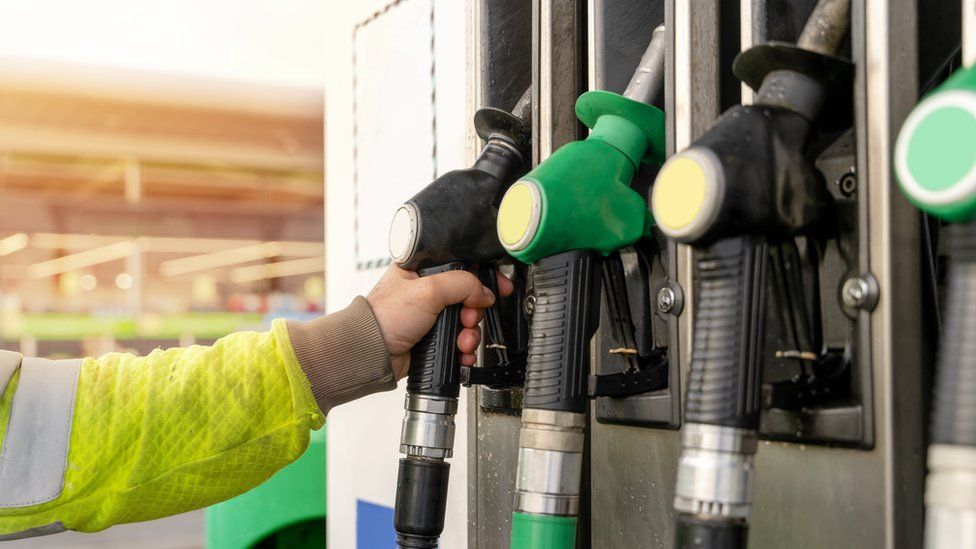ARTICLE AD BOX
 Image source, Getty Images
Image source, Getty Images
By Sam Gruet & Katy Austin
BBC Business
Oil prices have risen after Iran seized a tanker off the coast of Oman, raising concerns fuel prices could increase.
The oil tanker was heading for Turkey on Thursday when armed men ordered it to sail to an Iranian port.
The price of Brent crude oil jumped by more than 2%, to $78.40 a barrel following the incident.
Iranian state media is reporting the seizure is a retaliation for the hijacking last year of the same vessel by the US.
The act raises prospects of growing conflict in the Middle East, which could have a knock-on effect on UK fuel prices.
A rise in oil prices can lead to higher prices at the pumps and also drive higher inflation. Inflation, which measures the pace of price rises, has been falling in the UK and is currently 3.9%.
The average price of a litre fell below £1.40 on Thursday for the first time since October 2021, according to motoring group, the AA.
Diesel now averages 147.83p a litre across the country, down to a level last seen in early August.
This time last year, petrol and diesel averaged 149.47p and 171.93p a litre respectively.
"Drivers should be ready for pump price volatility, perhaps even a shock, but current pump prices are a huge relief for consumers and inflationary pressures," the AA's Luke Jones added.
Image source, Reuters
Image caption,Iran warned it would respond to the US seizure of the same vessel, which sailed under the name Suez Rajan, last year
This most recent incident appears to be separate from attacks carried out by Houthi rebels from Yemen in the Red Sea, on the opposite side of the Arabian peninsula.
But as Caroline Bain, chief commodities economist at Capital Economics points out, the reaction in the oil market has been fairly muted to these attacks and the Israel-Hamas war.
"Initially, when the war broke out, there were fears that some of the major oil producers in the region - particularly Iran, but also Saudi Arabia - would become actively involved," she said.
However, this no longer appears as likely and the risk of disruption to oil supply has been reduced. Demand for oil has dropped, following the slowdown in the EU and US economies and lack of growth in China, so there is less fear of supply shortfalls.
Conversely, there has been a "surprisingly strong growth in US oil production in 2023 and in some other non-OPEC producers such as Brazil and Guyana," Ms Bain added, which has "allayed fears of disruption to Middle East supply."

 1 year ago
32
1 year ago
32








 English (US) ·
English (US) ·